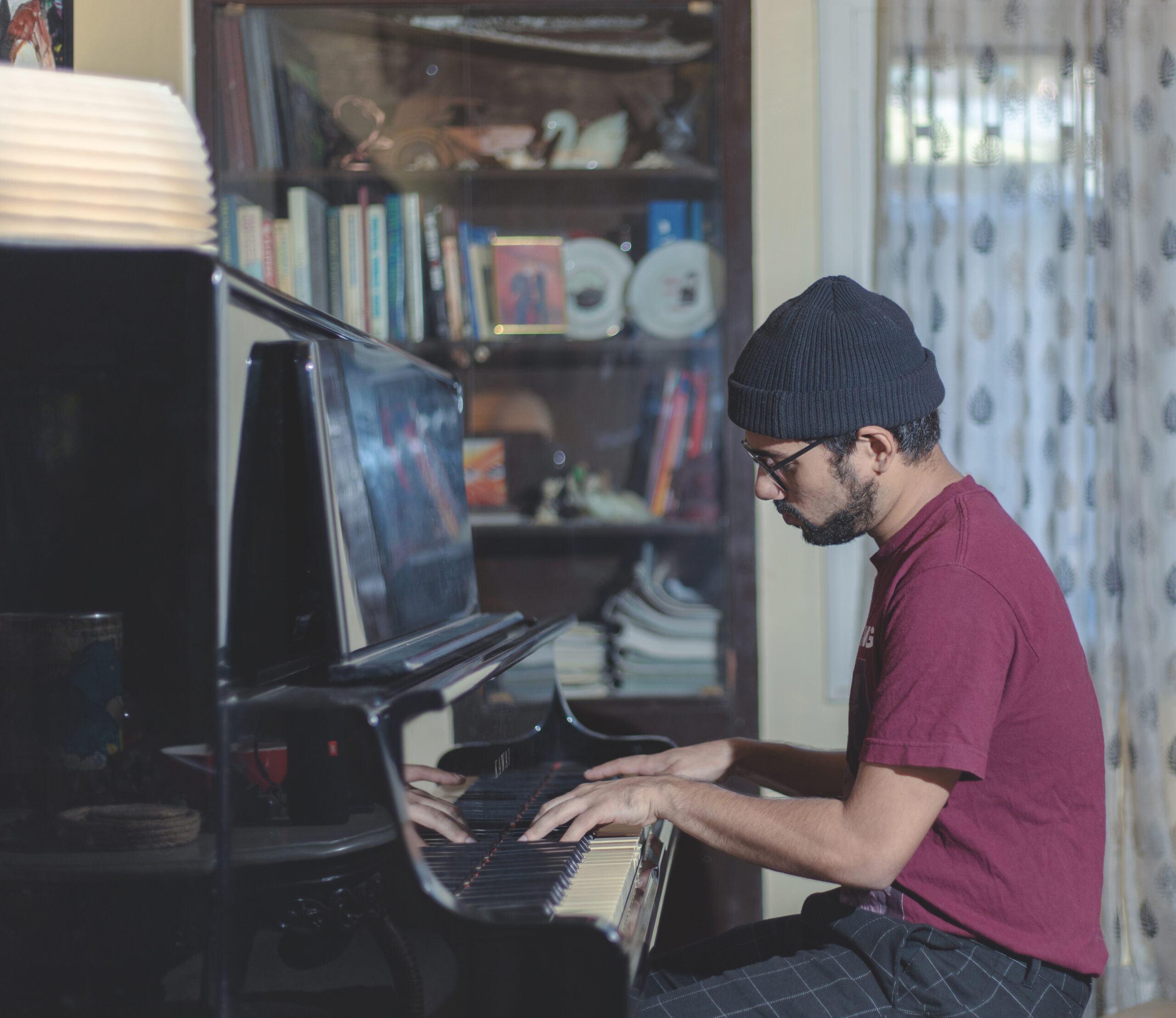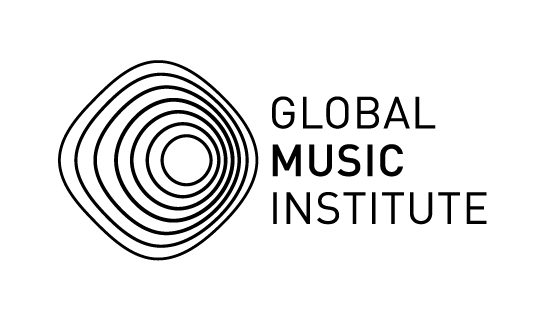
17 Mar In Conversation with: Ron Cha
The ‘In Conversation with’ series brings to you the stories of musicians and their musical journeys. Today’s feature captures a snippet of the journey of incredible pianist and composer Ron Cha, interviewed by our current student, Pranay Verma.
I heard that you’ve learnt from Taylor Eigsti, an incredibly dynamic and expressive pianist. What did you learn from him and how did it impact the way you look at music?
I clearly remember my lesson with Taylor, it was in 2017. He was based in New York at the time so I went up to his place for the lesson. Super nervous of course, since he is such a talented musician and so much of his music was inspiring to me. I played something for him and he got a general sense of where I am at.
One thing he said which really sticks out to me is about creative pedaling. When pedaling, most piano players either put the pedal all the way down or all the way up. But he demonstrated that there are in fact 20 different levels to each pedal on the piano and you can get incrementally higher amounts of sustain as you slowly push the pedal. There is so much more room to play with sustain than more people think about. I have been experimenting with that to this day, which has really made me think about pedaling in a more creative way and put more intention into it.
Since you were initially trained in Western Classical music, what was the transition like coming from a ‘traditional’ genre that has a very defined vocabulary to a free and liquid genre like jazz and improvised music. What aspects of jazz pulled you towards it?
So I started with Indian Classical music, but quickly switched to Western Classical since I enjoyed that more. My parents would take me to Shillong on the weekends which was a 3-4 hour long drive from Guwahati for lessons with Neil Nongkynrih, director of the Shillong Chamber Choir. There I got my grounding in Western Classical music. I also remember my dad giving me the Return to Forever ‘Romantic Warrior’ record. My mind blew up when I heard that for the first time. I did not like it on the first listen, and I was quite confused in fact, but it definitely got me curious and opened me up to these new sounds.
Then in 2008, I met a lady named Pauline Warjri in Shillong, who was really into jazz music. Since she knew I relied on my ear a lot to play, she suggested I try playing jazz. She would give me these pieces with really obscure chords which were really new to me. With western classical, the sound palette felt limiting sometimes, but these chords she showed me sounded really fresh and different, that is what really pulled me towards that sound. Then in 2011, I attended a co-artist music confluence in Switzerland, where I learnt jazz with faculty from various parts of the world. After coming back to India after the confluence, I was really inspired. That was when I really started digging deeper into jazz and practicing it.
Your music seems to have a spillover from genres like Western Classical, Blues and Gospel music, while still maintaining a persona of its own. At what point did you see your influences merging into one unique style?
To be honest, I have not thought of it like that, and I never really noticed these influences come together in that sense. While I was learning Western Classical from Neil Nongkynrih, on the side I was always trying to transcribe songs by other genres with artists like ABBA, Queen, Barry Harris, and even hold Hindi songs that my grandparents loved listening to me play. Over the years these styles have seeped in and I find myself having days where I am more influenced by some genres and it would come out in my playing. Some days I might jazz up a gospel tune, bring in some harmonies in the style of Barry Harris, who has been a big influence on me. Other days even if I am playing a standard, I will take it to church, you know. There are days where I am more inclined towards certain influences and styles. It ultimately boils down to the context, and my subconscious mind, how I am feeling that day.
What was the process of working on your solo piano record like? And how does the writing process differ when you write as part of an ensemble vs solo piano?
For my solo piano record, I never actually sat down to write the material. I came up with the melodies simply with the intention of putting them up on instagram, but they grew on me over time. I remember hanging out with Aman Sagar once and I played the songs for him. He had some studio time available so we decided to record the album the very next morning. It was a very spontaneous decision in that aspect, but we did put a lot of heart into it. So, to break down my process of writing for solo piano, I usually come up with a basic melody rather quickly, it is more about how I orchestrate the melody between my hands and how I harmonize it.
Writing parts for an ensemble is a completely different ball game. In an ensemble setting, I am not thinking about registers and the soundscapes in the same manner. There is a different holistic sound of the instrument in my head as opposed to when it is just solo piano. One parallel we can draw between the two is that if we transcribe a piano part from any solo piano record, and assign all the voices to different instruments in an ensemble based on register, it will almost certainly sound pleasing because of the way the keys on a piano are laid out and the entire register is accessible to you in a horizontal fashion. So, in a way there is a similarity between the two, but in terms of the sound and how I would approach writing for it is completely different.
How did the Ron Cha trio get formed? How did you meet Gino and the others?
Back when I was getting into jazz music, I used to make frequent trips to Bombay. Over there I met F.A. Talafaral. He is no longer in India, but back then he really helped me connect with the musicians over there and build my network across Mumbai and Delhi. I met Gino also through F.A. Talafaral, and he was known to host musicians. So Gino would curate these jam sessions where musicians would come to play and later hang out at his house. He would make sure you ate well and were comfortable. So that is how I met Gino and over time we just became good friends. We would hang out every time I went to Bombay and also played a bunch of gigs together. The Ron Cha trio formed as a result of
that. The configuration always kept changing. Sometimes I would play with Sheldon and Gino, sometimes Loy and Gino, occasionally Vasundhara would come in for a few tunes.
Which collaborations/works are you most proud of? Why?
Over the years there have been several ones that stick out to me. One of which is my collaboration with Jacques Schwarz Bart and Isaiah Weatherspoon. Our trio project is called Jazz With an Attitude (JWA). We are currently signed to a German label, but the album is not out yet. The connection and musical understanding we three have is indescribable. Jacques, Isaiah and I would just sit down and write 10 songs in like 2 hours, and they all would be amazing songs. It just feels like magic anytime we three sit together to play music, and the connection with them is truly special.
I am also really proud of my body of work with Lizzy Mcalpine. Our connection is just as special, but in a very different way. She is an incredible singer-songwriter and whenever we play together, there is a sense of understanding between us. I feel Lizzy is a jazz musician somewhere deep inside and she would probably deny it, but she just has an incredible ear and an affinity towards sounds that a typical singer-songwriter wouldn’t generally go for.
Last but not least I am really happy with how the assamese folk music project that I am working on right now is turning out. These assamese folk melodies have been passed down the generations, but never had any harmony supporting it. The idea with this record is to make arrangements for these melodies, against a jazzy harmonic backdrop. The first single ‘Lost’ is out, and I can not wait to put out the rest of the album.
To stay tuned with Ron’s journey, follow him on Spotify!
Written and interviewed by Pranay Verma



Nidhi
Posted at 23:25h, 17 MarchVery interesting interview. I could understand the “behind the scene” journey. Very thoughtful questions and replies